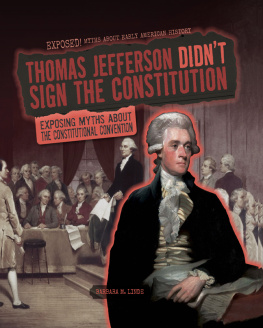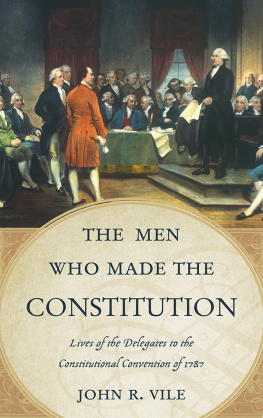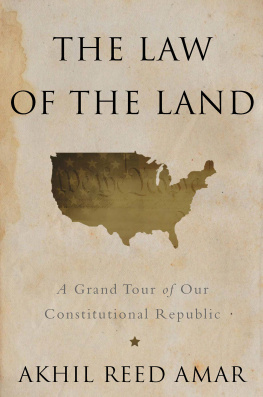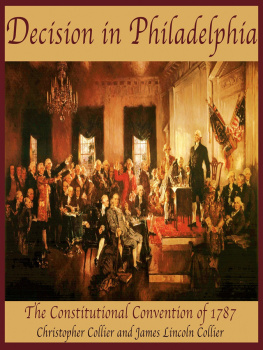Preamble
Table of Contents
In exercising our inherent sovereignty,
We, the people of Palau
proclaim and reaffirm our immemorial right
to be supreme in these islands of Palau, our homeland.
We renew our dedication
to preserve and enhance our traditional heritage,
our national identity and
our respect for peace, freedom and justice for all mankind.
In establishing this Constitution
of the sovereign Republic of Palau,
We venture into the future with full reliance on our own efforts
and the divine guidance of Almighty God.
ARTICLE I. TERRITORY
Table of Contents
Section 1Palau shall have jurisdiction and sovereignty over its territory which shall consist of all of the islands of the Palauan archipelago, the internal waters, the territorial waters, extending to two hundred (200) nautical miles from a straight archipelagic baseline, the seabed, subsoil, water column, insular shelves, and airspace over land and water, unless otherwise limited by international treaty obligations assumed by Palau. The straight archipelagic baseline shall be drawn from the northernmost point of Ngeruangel Reef, thence east to the northernmost point of Kayangel Island and around the island to its easternmost point, south to the easternmost point of Helen's Reef, west from the southernmost point of Helen's Reef to the easternmost point of Tobi Island and then around the island to its westernmost point, north to the westernmost point of Fana Island, and north to the westernmost point of Ngeruangel Reef and then around the reef to the point of origin.Section 2Each state shall have exclusive ownership of all living and non-living resources, except highly migratory fish, from the land to twelve (12) nautical miles seaward from the traditional baselines; provided, however, that traditional fishing rights and practices shall not be impaired.Section 3The national government shall have the power to add territory and to extend jurisdiction.Section 4Nothing in this Article shall be interpreted to violate the right of innocent passage and the internationally recognized freedom of the high seas.
ARTICLE II. SOVEREIGNTY AND SUPREMACY
Table of Contents
Section 1This Constitution is the supreme law of the land.Section 2Any law, act of government, or agreement to which a government of Palau is a party, shall not conflict with this Constitution and shall be invalid to the extent of such conflict.Section 3Major governmental powers including but not limited to defense, security, or foreign affairs may be delegated by treaty, compact, or other agreement between the sovereign Republic of Palau and another sovereign nation or international organization, provided such treaty, compact or agreement shall be approved by not less than two-thirds () of the members of each house of the Olbiil Era Kelulau and by a majority of the votes cast in a nationwide referendum conducted for such purpose, provided, that any such agreement which authorizes use, testing, storage or disposal of nuclear, toxic chemical, gas or biological weapons intended for use in warfare shall require approval of not less than three-fourths () of the votes cast in such referendum.
ARTICLE III. CITIZENSHIP
Table of Contents
Section 1A person who is a citizen of the Trust Territory of the Pacific Islands immediately prior to the effective date of this Constitution and who has at least one parent of recognized Palauan ancestry is a citizen of Palau.Section 2A person born of parents, one or both of whom are citizens of Palau is a citizen of Palau by birth, and shall remain a citizen of Palau so long as the person is not or does not become a citizen of any other nation.Section 3A citizen of Palau who is a citizen of another nation shall, within three (3) years after his eighteenth (18) birthday, or within three (3) years after the effective date of this Constitution, whichever is later, renounce his citizenship of the other nation and register his intent to remain a citizen of Palau. If he fails to comply with this requirement, he shall be deprived of Palauan citizenship.Section 4A person born of parents, one or both of whom are of recognized Palauan ancestry, shall have the right to enter and reside in Palau and to enjoy other rights and privileges as provided by law, which shall include the right to petition to become a naturalized citizen of Palau; provided, that prior to becoming a naturalized citizen, a person must renounce his citizenship by naturalization except pursuant to this section.Section 5The Olbiil Era Kelulau shall adopt uniform laws for admission and exclusion of noncitizens of Palau.
ARTICLE IV. FUNDAMENTAL RIGHTS
Table of Contents
Section 1The government shall take no action to deny or impair the freedom of conscience or of philosophical or religious belief of any person nor take any action to compel, prohibit or hinder the exercise of religion. The government shall not recognize or establish a national religion, but may provide assistance to private or parochial schools on a fair and equitable basis for nonreligious purposes.Section 2The government shall take no action to deny or impair the freedom of expression or press. No bona fide reporter may be required by the government to divulge or be jailed for refusal to divulge information obtained in the course of a professional investigation.Section 3The government shall take no action to deny or impair the right of any person to peacefully assemble and petition the government for redress of grievances or to associate with others for any lawful purpose including the right to organize and to bargain collectively.Section 4Every person has the right to be secure in his person, house, papers and effects against entry, search and seizure.Section 5Every person shall be equal under the law and shall be entitled to equal protection. The government shall take no action to discriminate against any person on the basis of sex, race, place of origin, language, religion or belief, social status or clan affiliation except for the preferential treatment of citizens, for the protection of minors, elderly, indigent, physically or mentally handicapped, and other similar groups, and in matters concerning intestate succession and domestic relations. No person shall be treated unfairly in legislative or executive investigation.Section 6The government shall take no action to deprive any person of life, liberty, or property without due process of law nor shall private property be taken except for a recognized public use and for just compensation in money or in kind. No person shall be held criminally liable for an act which was not a legally recognized crime at the time of its commission, nor shall the penalty for an act be increased after the act was committed. No person shall be placed in double jeopardy for the same offense. No person shall be found guilty of a crime or punished by legislation. Contracts to which a citizen is a party shall not be impaired by legislation. No person shall be imprisoned for debt. A warrant for search and seizure may not issue except from a justice or judge on probable cause supported by an affidavit particularly describing the place, persons, or things to be searched, arrested, or seized.Section 7A person accused of a criminal offense shall be presumed innocent until proven guilty beyond a reasonable doubt and shall enjoy the right to be informed of the nature of the accusation and to a speedy, public and impartial trial. He shall be permitted full opportunity to examine all witnesses and shall have the right of compulsory process for obtaining witnesses and evidence on his behalf at public expense. He shall not be compelled to testify against himself. At all times the accused shall have the right to counsel. If the accused is unable to afford counsel, he shall be assigned counsel by the government. Accused persons lawfully detained shall be separated from convicted criminals and on the basis of sex and age. Bail may not be unreasonably excessive nor denied those accused and detained before trial. The writ of habeas corpus is hereby recognized and may not be suspended. The national government may be held liable in a civil action for unlawful arrest or damage to private property as prescribed by law. Coerced or forced confessions shall not be admitted into evidence nor may a person be convicted or punished solely on the basis of a confession without corroborating evidence.Section 8A victim of a criminal offense may be compensated by the government as prescribed by law or at the discretion of the court.Section 9A citizen of Palau may enter and leave Palau and may migrate within Palau.Section 10Torture, cruel, inhumane or degrading treatment or punishment, and excessive fines are prohibited.Section 11Slavery or involuntary servitude is prohibited except to punish crime. The government shall protect children from exploitation.Section 12A citizen has the right to examine any government document and to observe the official deliberations of any agency of government.Section 13The government shall provide for marital and related parental rights, privileges and responsibilities on the basis of equality between men and women, mutual consent and cooperation. Parents or individuals acting in the capacity of parents shall be legally responsible for the support and for the unlawful conduct of their minor children as prescribed by law.









